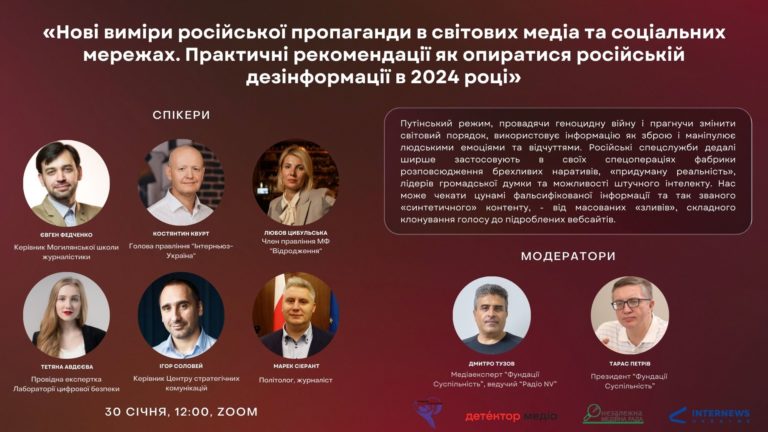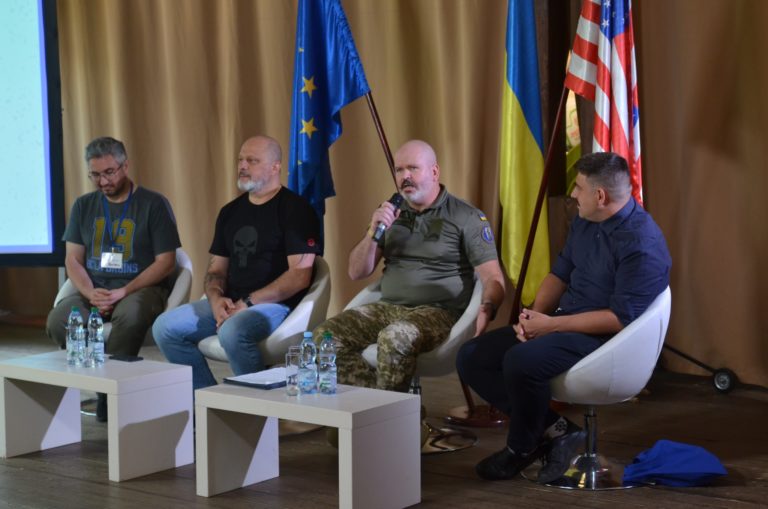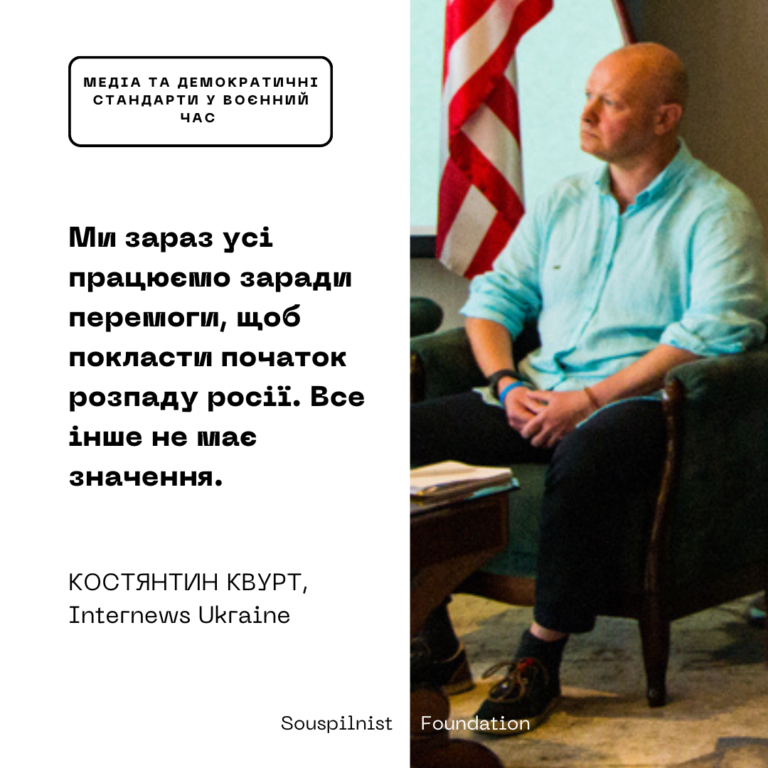On October 27, an online expert discussion “The media’s role during local election campaigns” took place.
The event was organized by Souspilnist Foundation with the help of Internews Ukraine, Detector Media, and the Independent Media Council.
Taking part in the discussion were Tetiana Yakubovych, journalist and project editor at Donbas.Realii, Oleksandr Martynenko, director general at Interfax Ukraine, Ilona Dovhan, journalist and NV Radio host, Oleksiy Matsuka, chairman of the board at Donetsk Institute of Information, Nataliia Lyhachova, editor-in-chief at Detector Media, Oksana Romaniuk, executive director at the Institute of Mass Information, Nataliia Sokolenko, journalist and Ukrayinske Radio host, Mykola Davydiuk, political expert, Kostiantyn Kvurt, chairman of the board at Internews, Volodymyr Noskov, staff correspondent for Radio Liberty in Kharkiv and Kharkiv Oblast.
The main issue under discussion was whether and how the media’s role changed in the 2020 local elections compared to 2015 and the possible steps to be taken to make the media’s work more high-quality during future election campaigns.
“Unfortunately, I can’t say that the media’s role has changed in any way over the last five years. Independent newsrooms tried to keep voters informed, while the dependent media served their owners, with those “in the middle” busy publishing paid news.
As for the changes, for the first time in the many years of monitoring the situation by the Institute of Mass Information since 2014, counter-campaigns rated second among paid news. Counter-campaigns and black PR amounted to 19% of all paid news. For comparison, we used to say that we had a “black” parliamentary election or that the presidential election saw lots of fake news. It was four times less “smear stuff” at that time. And the mud slinging never stopped. Oligarchic money was poured in to spread paid news – For the Future party had a lot of paid news, also Servant of the People had lots of materials showing signs of paid-for articles.” – Oksana Romaniuk noted.
The executive director at the Institute of Mass Information also noted that the number of fake news grew considerably during the local election campaigns – the media space was simultaneously filled with such subjects as coronavirus, protests in Belarus, and the local elections proper, with increased amount of Russian disinformation with regard to the Crimea situation.
However, the experts noted that the media’s influence on the population has become weaker. Television remains the most popular media, while the largest channels are owned by oligarchs.
“TV set has been running the show for so many years, and larger amounts are being poured in it. I can’t help wondering how news have stopped being news. Today, the news are a kind of platforms for the media owners and those parties and politicians they support. The media stop being media, they stop performing their informing and educational function.” – Ilona Dovhan noted.
Social networks have come to the fore, where it’s easy to disseminate fake news, as well we bloggers and influencers who do not work according to journalistic standards.
“In reality, these were the elections of the TV set, boards and Facebook. Well, and I guess, also pseudo-sociology was one of the hallmarks of these elections.” – Oleksandr Martynenko summed up.
Among the possible solutions to the issues raised, the experts named the development of various platforms promoting pro-Ukrainian ideas, high-quality state regulation of the media sphere, including financial monitoring of the media and introducing sanctions for using Russian financing.
“The local elections showed that we have no other choice but to have state regulation – (pro-)Russian propaganda must be regulated by the state. Our Ukrainian government has to finally be a Ukrainian government, because even today we’re not able to say whether Zelenskyi is definitely pro-Ukrainian.” – Nataliia Lyhachova added.
Watch the full discussion here:
This event was made possible with the support of USAID-funded Media Program in Ukraine, implemented by Internews, and with the help of private patrons.


